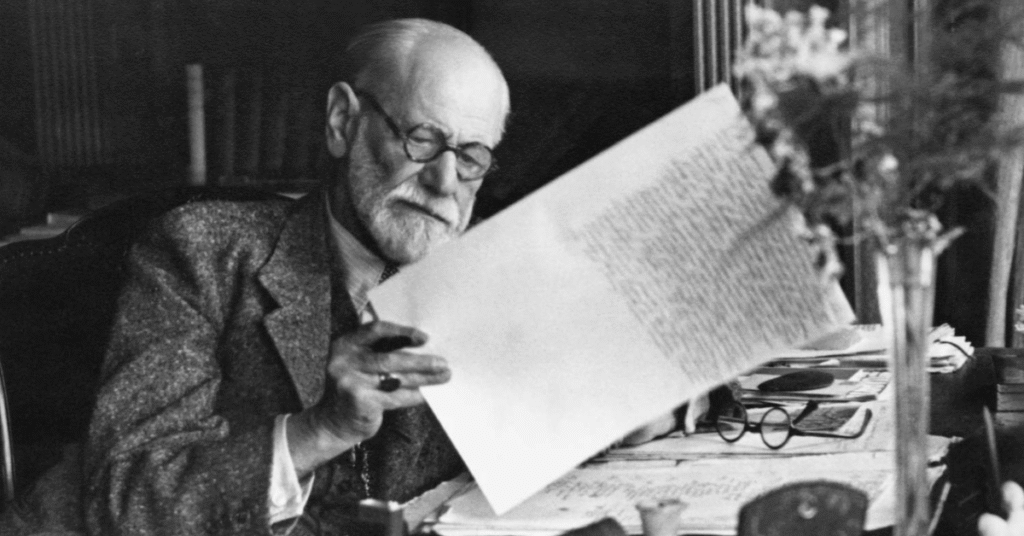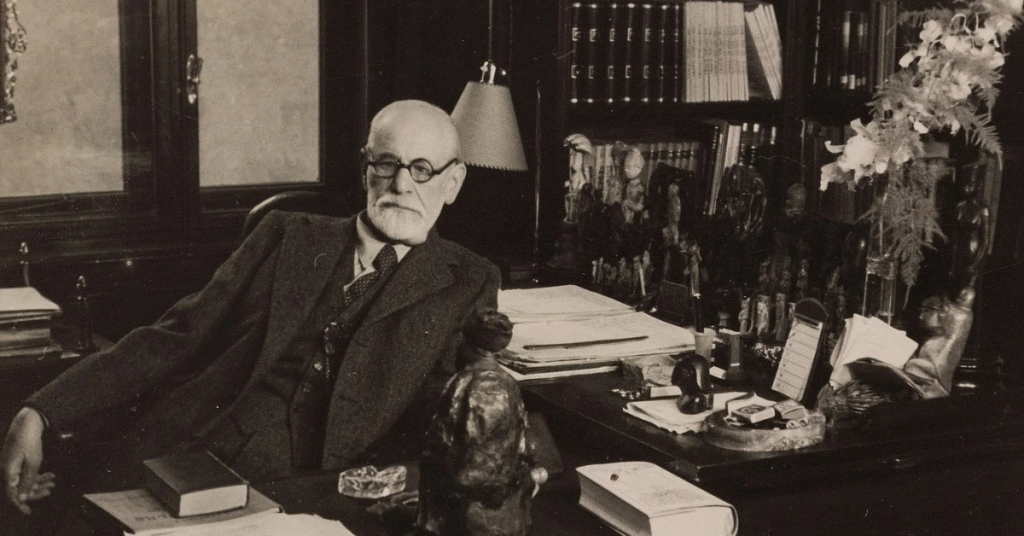Table of Contents
When we talk about psychology and the human mind, one name echoes louder than most: Sigmund Freud. Love him or criticize him, Freud remains one of the most influential — and controversial — figures in the history of psychology. But who was he, and why do his ideas still matter today?
🧠 A Brief Introduction
Sigmund Freud was born in 1856 in what is now the Czech Republic. He later lived and worked in Vienna, Austria, where he laid the foundations of psychoanalysis, a revolutionary theory about the human psyche that forever changed the way we think about the mind.
Before Freud, mental illness was often seen as a mystery — or worse, a moral failure. Freud dared to suggest something radical: that our unconscious thoughts and childhood experiences shape who we are.
🔍 Freud’s Big Idea: The Unconscious Mind

Freud proposed that most of our thoughts, feelings, and behaviors are influenced by unconscious desires — especially those rooted in early childhood. We might not even be aware of them, but they silently guide our actions, relationships, and fears.
Imagine an iceberg: the small tip above water is our conscious mind, and the massive part below the surface is the unconscious. That’s where Freud believed our deepest motivations live — hidden from view, but always active.
⚔️ Id, Ego, and Superego
Freud also developed a model of the human psyche consisting of three parts:
- Id: The primal part of the mind that seeks pleasure and avoids pain. It’s all about instant gratification.
- Superego: The moral voice, shaped by society, parents, and culture. It pushes us to do the “right” thing.
- Ego: The rational part that balances the id and superego. It deals with reality and makes decisions.
Think of the ego as the mediator between the angel (superego) and the devil (id) on your shoulders.
🌙 Dreams and the Unconscious
Freud believed that dreams were the “royal road to the unconscious.” In his famous book The Interpretation of Dreams (1899), he argued that dreams reveal hidden desires and unresolved conflicts.
That strange dream you had last night? Freud might say it wasn’t random — it was your unconscious trying to send a message in code.
🛋️ The Birth of Talk Therapy
Freud introduced the idea of talking as a form of treatment. His technique, called psychoanalysis, involved patients freely sharing thoughts, dreams, and memories while lying on a couch.
Through this process, he helped people uncover hidden conflicts and emotions — leading to insights and healing.
This was the start of what we now call talk therapy, used in many modern forms of psychology today.

😬 Controversies and Criticisms
Freud wasn’t without his critics. Some of his ideas, like the Oedipus complex (the theory that boys experience unconscious sexual desire for their mothers), have been widely debated — and often rejected.
Modern psychology has moved away from many of Freud’s specific theories. However, his work opened the door for future psychologists to explore the emotional and unconscious aspects of human behavior.
📚 Freud’s Legacy
Even if you don’t agree with all his theories, Freud changed how we understand mental health. Terms like repression, defense mechanisms, and Freudian slip have become part of everyday language.
Today, Freud is remembered not just as a psychologist, but as a cultural icon whose work influenced literature, art, film, and even philosophy.
🌟 Final Thoughts
Sigmund Freud gave us a powerful message: there is more to the human mind than meets the eye. His theories sparked debate, inspired generations of thinkers, and opened new paths for understanding mental health.
Whether you see him as a genius or a flawed pioneer, one thing is clear — Freud’s ideas continue to shape the conversation about who we are and why we do what we do.

